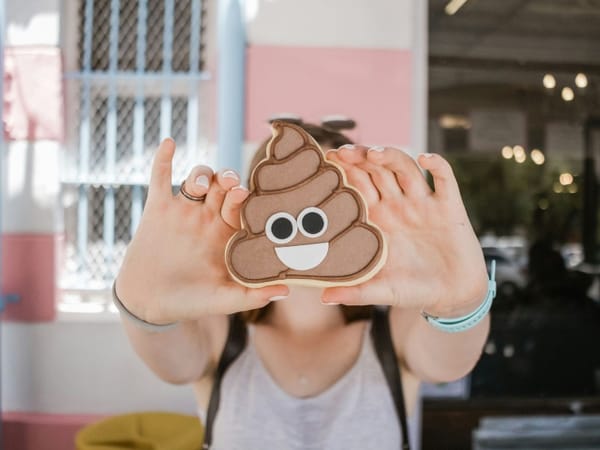In our modern world, we're surrounded by countless chemicals designed to make our lives easier and more convenient. From the pesticides that protect our crops to the plastics that package our food, these substances have become an integral part of our daily lives. But what if these same chemicals, meant to help us, are actually causing harm to our health in ways we're only beginning to understand? Recent scientific research has uncovered a disturbing link between common environmental chemicals and long-term damage to our gut health, potentially leading to lifelong diseases.
Key Takeaways:
- Environmental chemicals like pesticides and plastics can disrupt the delicate balance of our gut microbiome.
- This disruption may lead to various health issues, including obesity, diabetes, and even neurological disorders.
- Children and developing fetuses are particularly vulnerable to these effects.
- Organic diets and reducing plastic use can help minimize exposure to harmful chemicals.
- More research is needed to fully understand the long-term impacts of these chemicals on human health.
The Hidden Danger in Our Environment
We often think of pollution as something we can see or smell - smog in the air or litter on the ground. But some of the most dangerous pollutants are invisible to the naked eye and can be found in the most unexpected places, including our food and everyday household items. Scientists are now sounding the alarm about how these common chemicals may be silently altering our gut health, potentially leading to a host of lifelong diseases.
Understanding the Gut Microbiome
Before we dive into the effects of these chemicals, it's important to understand what we mean by "gut health." Our digestive system is home to trillions of tiny organisms, mostly bacteria, that make up what's called the gut microbiome. This complex ecosystem plays a crucial role in our overall health, affecting everything from our immune system to our mood.
Think of your gut microbiome as a bustling city. Just like a city needs a diverse population to function well, our gut needs a variety of different bacteria to keep us healthy. When this balance is disrupted, it can lead to all sorts of problems throughout our body.
The Chemical Culprits
So, what are these chemicals that are causing such concern? They fall into several categories:
- Pesticides: Used to protect crops from pests, these chemicals can linger on our food.
- Plasticizers: Found in many plastic products, including food packaging.
- Heavy metals: Can contaminate our food and water supply.
- Endocrine disruptors: Chemicals that interfere with our hormone systems, found in many everyday products.
These substances are so common that it's nearly impossible to avoid them entirely in our modern world. They're in the food we eat, the water we drink, and even the air we breathe.
How These Chemicals Affect Our Gut
When these chemicals enter our body, they can wreak havoc on our gut microbiome in several ways:
- Killing beneficial bacteria: Some chemicals act like antibiotics, wiping out good bacteria along with the bad.
- Promoting harmful bacteria: Certain chemicals can create an environment where harmful bacteria thrive.
- Altering gene expression: Some substances can change how our gut bacteria behave at a genetic level.
- Damaging the gut lining: This can lead to increased inflammation and a condition known as "leaky gut."
The result is a gut microbiome that's out of balance, a condition scientists call "dysbiosis." This imbalance can lead to a wide range of health problems, both immediate and long-term.
The Long-Term Health Consequences
The effects of these chemical exposures can be far-reaching and long-lasting. Some of the potential health issues linked to gut microbiome disruption include:
- Obesity and metabolic disorders: Changes in gut bacteria can affect how we process and store energy from food.
- Diabetes: Dysbiosis has been linked to insulin resistance and type 2 diabetes.
- Inflammatory bowel diseases: Conditions like Crohn's disease and ulcerative colitis may be triggered or worsened by chemical exposure.
- Allergies and asthma: An altered gut microbiome can affect our immune system, potentially leading to increased allergies.
- Neurological disorders: There's growing evidence of a gut-brain connection, with some researchers linking gut health to conditions like autism and Parkinson's disease.
Children at Greatest Risk
While these chemicals can affect anyone, children and developing fetuses are particularly vulnerable. Their bodies are still developing, and exposure to these substances during critical growth periods can have lifelong consequences. This is especially concerning because many of these chemicals can cross the placental barrier, affecting babies before they're even born.
What Can We Do?
While the situation may seem dire, there are steps we can take to protect ourselves and our families:
- Choose organic: When possible, opt for organic produce to reduce pesticide exposure.
- Avoid plastics: Use glass or stainless steel containers for food storage and avoid heating food in plastic.
- Filter your water: A good water filter can remove many contaminants.
- Read labels: Be aware of what's in your personal care and cleaning products.
- Support stricter regulations: Advocate for stronger laws governing the use of potentially harmful chemicals.
The Need for Further Research
While the evidence linking environmental chemicals to gut health problems is growing, there's still much we don't know. Scientists are calling for more research to fully understand the long-term impacts of these exposures and to develop strategies to mitigate their effects.
Conclusion
The discovery that common environmental chemicals may be permanently altering our gut health is a wake-up call. It highlights the complex interconnections between our environment, our diet, and our health. While the challenges are significant, understanding these risks is the first step toward addressing them. By making informed choices and supporting policies that prioritize public health, we can work towards a future where our environment supports, rather than undermines, our well-being.
Remember, small changes in our daily lives can add up to significant benefits for our health and the health of future generations. By staying informed and making conscious choices, we can all play a part in protecting our gut health and overall well-being from the silent threat of environmental chemicals.
Citations:
[1] https://www.ncbi.nlm.nih.gov/pmc/articles/PMC8835190/
[2] https://www.ncbi.nlm.nih.gov/pmc/articles/PMC10239610/
[3] https://www.nature.com/articles/s41396-023-01450-9
[4] https://zoe.com/learn/do-pesticides-affect-your-gut-microbiome
[5] https://www.frontiersin.org/journals/microbiology/articles/10.3389/fmicb.2023.1223120/full













Member discussion